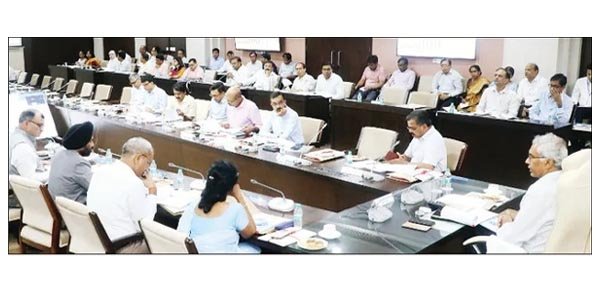New Delhi, July 20 (UNI) The Indian industry on Monday said that it is time to look at next leap on reforms trajectory that would prepare India for achieving higher growth.
Commenting on the Economic Survey 2023-24 tabled in the Parliament today, Industry body FICCI said, “We see a very mature take on the outlook for the Indian economy presented as part of the Economic Survey.
While a projected growth rate of 6.5-7 percent for the fiscal 2024-25 may appear a bit conservative, we feel that for a country of the size of India and which has been growing at a fast pace, this growth is encouraging.”
Having said that, let me also add that with many path breaking reforms such as GST and IBC having now matured, it is time that we look at the next leap on the reforms trajectory that would prepare India for achieving even higher growth, FICCI President Anish Shah said in a statement.
The Economic Survey has highlighted six priority areas for India’s future development. These include boosting private investments, strengthening of MSMEs, removing impediments to growth of the agriculture sector, having a clear framework for green transition financing, bridging the education-employment gap through greater focus on skilling and strengthening state capacity and capability.
FICCI agrees with these identified areas and in its recent submissions to the government the industry body has shared specific recommendations on each of these areas.
While there are many important issues flagged in the Economic Survey, there are a few that merit immediate attention. First, the survey has suggested that a higher level of private sector financing and resource mobilisation from new sources will be crucial for India to build quality infrastructure.
This would not only require policy and institutional support from the central government, but state and local governments would have to play an equally important role.
Second, private capital formation after good growth in the last three years may turn slightly more cautious because of fears of cheaper imports from countries that have excess capacity.
Third, the need to explore whether India’s inflation targeting framework should target inflation rate excluding food.
FICCI concurs with all the aforementioned points and would continue to engage with the government on the same. Infrastructure development requires close coordination amongst all levels of government as there are a multitude of clearances that are needed at each level, and which are often inter-related.
Further, many of our constituents have flagged the issue of being cautious and alert to the possibility of rise in imports into the India market given the global trade dynamics that are at play.
Finally, food inflation is entirely a supply side phenomenon over which monetary policy has little control. Hence, we are encouraged by the suggestion to consider re-examination of the inflation targeting framework excluding food items, Shah said.











